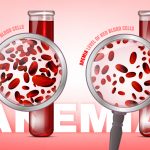COVID-19 pandemic is the third recorded outbreak of a coronavirus

Nobody is unknown to coronavirus and the havoc it has wreaked on humanity since 2020. Considered to have been one of the biggest pandemics in the history of humankind, the coronavirus induced COVID-19, is still infecting millions of people worldwide with its emerging variants.
As per an NCBI paper, the COVID-19 pandemic is the third recorded outbreak of a coronavirus, with the 2002 sudden acute respiratory syndrome (SARS, SARS-CoV-1 or SARS-CoV) and the 2012 Middle East respiratory syndrome (MERS or MERS-CoV) epidemics preceding it.READMORE
02/4Coronavirus variants
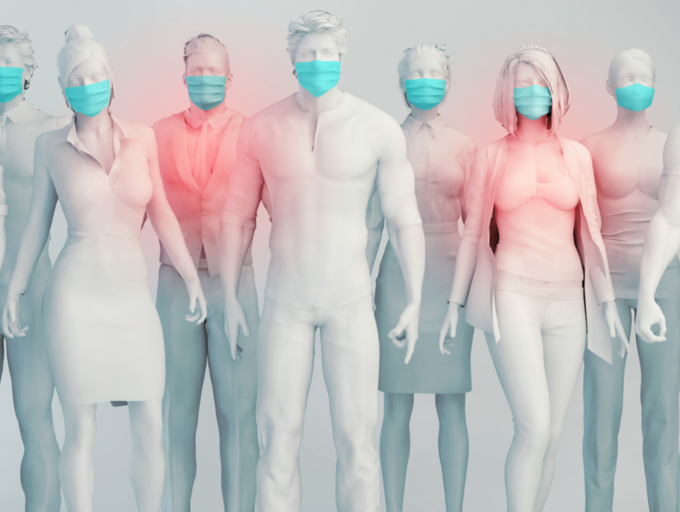
Viruses change over time. While most viruses do not change their properties, in many others important properties associated with the severity, performance of vaccines, therapeutic medicines, and diagnostic tools change drastically, posing a threat to mankind.
This is how variants are formed.
Depending on their risk to public health, the World Health Organisation (WHO) classifies coronaviruses as either variants of concern or variants of interest.
The variants of concern have a detrimental effect on the infected people. These variants have increased transmissibility, and virulence.
03/4Coronavirus variants of concerns
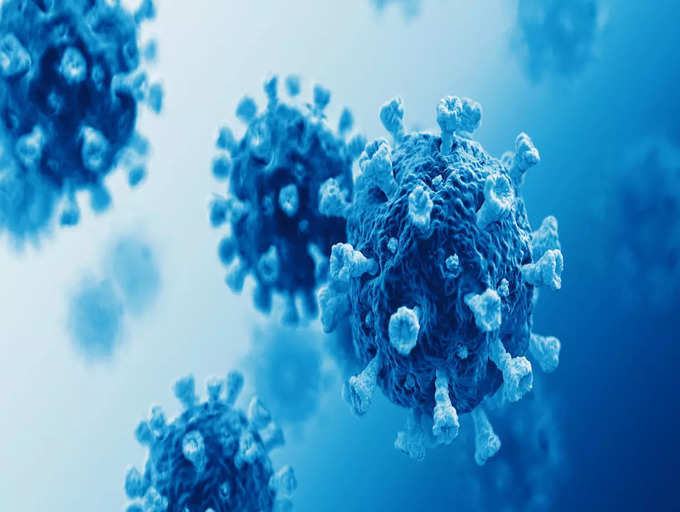
So far, five variants of coronavirus have been labelled as variants of concern:
Alpha, Beta, Gamma, Delta, and Omicron.
The Alpha variant, B.1.1.7, was first found in the United Kingdom in September 2020, as per WHO. The Beta variant, B.1.351, was found in South Africa in May 2020. The next highly transmissible variant, Gamma, P.1, was found in Brazil in November 2020.
“These three ‘variants of concern’ share some mutations, particularly in key regions of the spike protein involved in recognizing the host-cell ACE2 receptors that the virus uses to enter cells. They also carried mutations similar or identical to those spotted in SARS-CoV-2 in people with compromised immune systems whose infections lasted for months,” says a Nature article.
The fourth variant, Delta, B.1.617.2, or the super-Alpha, as researchers call it, was identified in India in October 2020. Epidemiologists say it was 60% more transmissible than the alpha variant. “Compared with other variants, including Alpha, Delta multiplies faster and to higher levels in the airways of infected individuals, potentially outpacing initial immune responses against the virus,” the article says.
The Omicron, B.1.1.529, variant was traced in November 2021. Compared with other variants, Omicron contains more mutations, in the spike that recognizes host cells, thus accounting for its transmissibility.
The coronavirus variants which are variants of interest as per WHO are Lambda and Mu.READMORE
04/4What do research studies say about the next one?
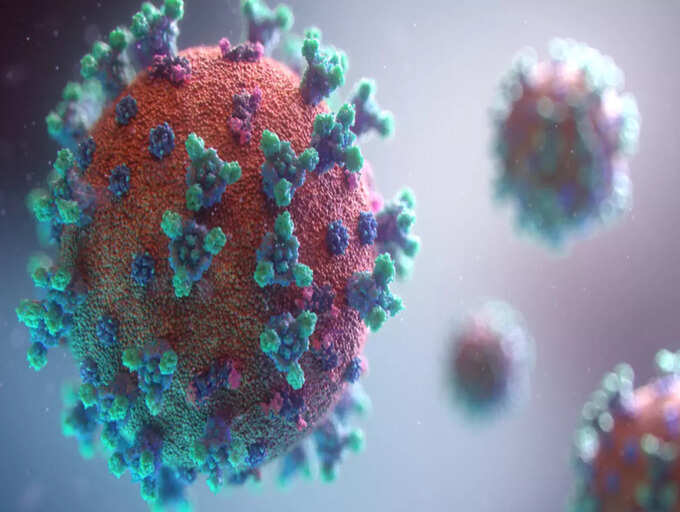
A Nature article citing evolutionary biologist Jesse Bloom says that the new pathogen would not be eradicated. Rather, it would become endemic and establish itself in humans.
On the aggressive mutation of the virus, and in view of the mild severity of the Omicron, Andrew Rambaut, an evolutionary biologist at the University of Edinburgh, UK told Nature that expecting the next variant to be milder “is bit of a myth. The reality is far more complex.”
The WHO calls for following COVID appropriate behaviour in order to stop the transmission of the infection from the current as well as future variants.
WHO expert Maria Van Kerkhove says, “Omicron will not be the last variant that you will hear us discuss, and the possibility of future emergence of variants of concern is very real. And more variants that emerge, we don’t understand what those the properties of those variants may be.”
Even though the omicron variant of the coronavirus has spread to every corner of the world, there is still a lot to know about this new variant that emerged from South Africa. Researchers are trying to decode its nature to find the right cure and method to prevent it. It is quite clear that omicron leads to milder symptoms as compared to other variants. But even those infected with this variant experiences a wide range of symptoms that are distinct from each other.
One of the most prominent things about the Omicron variant is that it leads to milder cold-like symptoms. Unlike previous variants, Omicron does not lead to severe respiratory infection nor does it cause loss of smell and taste, which was prominent in the case of the Delta variant. Headaches, sore throat, cold, runny nose and fatigue are some earlier symptoms of Omicron, which overlaps with a common cold. Another symptom associated with the Omicron variant is gastrointestinal illness. Data collected from across the globe reveals that most people suffer from gastrointestinal health issues and some of those do not even have any respiratory symptoms at all. Stomach bugs and gastrointestinal symptoms are common in the case of the omicron variant.
03/5Why Omicron patients are experiencing different symptoms

There are many reasons why people infected with the Omicron variant are experiencing different symptoms. One could be the COVID vaccination. Vaccinated and unvaccinated people experience different types of symptoms. Now that a majority of people are vaccinated, they might be experiencing milder symptoms in the case of breakthrough infection. Even though vaccination cannot provide 100 per cent protection, it can cut down the risk of severity and hospitalization to almost half.
Another reason could be the underlying health problems in people infected with Omicron. When a person infected with omicron is already suffering from a health condition or their immunity is compromised, they may experience severe symptoms as compared to a healthy individual.READMORE
04/5How long does it take for symptoms to appear?

Once infected with the Omicron variant, a person starts showing symptoms within 2-3 days. The new variants’ incubation time is shorter than other variants. In the case of the Delta variant, it generally takes 5-6 days for a person to develop the symptoms. The researchers believe that it could be because the variant’s mutations help it attach to and go inside cells. Not only this, in the case of Omicron the patient’s condition gets better in 10 days, while in the case of Delta it may take 15 days or longer.
Read more: COVID booster shot: People are experiencing this lingering symptom in the mouth after their third shotREADMORE
05/5Could Omicron lead to long COVID?

Omicron indeed leads to mild symptoms, but it should not be taken lightly. It is a mutant variant of COVID-19 and can lead to severe symptoms in the case of any carelessness. As far as the cases of long COVID are concerned, not much is known about Omicron. Patients do experience muscle ache and fatigue after getting infected with the omicron variant, but a lot more research is needed in this area. Till that time all we can do is follow all COVID norms and get vaccinated to stay safe and healthy.
01/5Re-infection from coronavirus is possible

With COVID-19 infection and coronavirus having already become a part of planet earth, many plausible questions arise. One such question is how soon can I get re-infected?
COVID-19 infection is caused by the SARS-CoV2 which is considered to be a highly transmissible virus. While the virus has already attacked us in different mutated forms, emergence of new mutations in the future can not be ruled out.
Re-infection from this virus is possible if COVID-19 prevention-appropriate behaviour is not followed properly. Of the many prevention measures that can actually cut the chain of COVID-19 transmission , the effective ones are wearing masks, keeping hands sanitized.
See more: Coronavirus symptoms & Omicron BA.2 subvariantREADMORE
02/5What is COVID-19 reinfection?
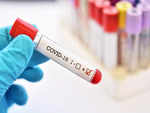
When an individual gets infected more than once, he or she is said to be reinfected.
“Reinfection with the virus that causes COVID-19 means a person was infected, recovered, and then later became infected again. After recovering from COVID-19, most individuals will have some protection from repeat infections. However, reinfections do occur after COVID-19,” says the US Centers for Disease Control and Prevention.
03/5How soon can one be reinfected with COVID-19?
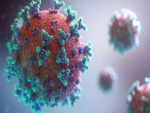
Many experts have linked immunity with reinfection.
Though there is no definite answer to how soon one can re-contract the disease, as per data from CDC, “the latest data suggests that retesting someone in the 3 months following initial infection is not necessary unless that person is exhibiting the symptoms of COVID-19 and the symptoms cannot be associated with another illness.”
Another report from Medanta says, “Most people who are infected with the COVID-19 virus, whether or not they have symptoms, produce antibodies (proteins that fight infections) and fighter cells. For those recovered, the chances of reinfection appear to be very low in the first three months after the initial infection.”
Continue Reading: https://timesofindia.indiatimes.com/life-style/health-fitness/health-news/coronavirus-alpha-beta-gamma-delta-omicron-know-what-studies-say-about-next/photostory/89404397.cms




